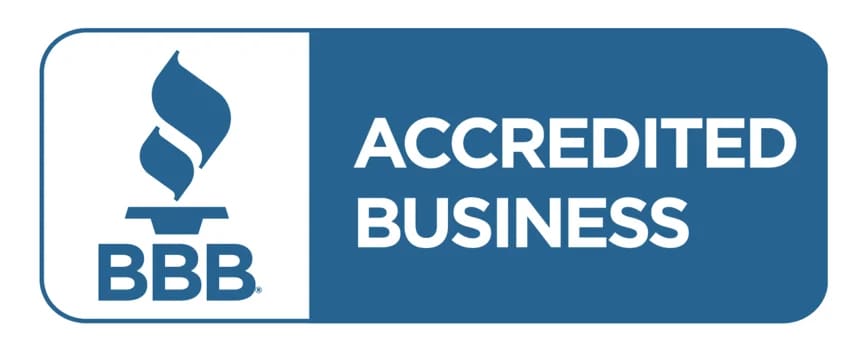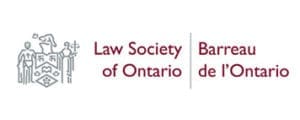IN THE PROVINCIAL COURT OF BRITISH COLUMBIA
REGINA v. KEVIN STARK
[1] Kevin Stark was charged with impaired driving and refusing to provide a breath sample, arising from an incident August 9, 2003 in Coquitlam, British Columbia. The trial was held over several days. All issues but one were dealt with at the end of the trial. The remaining issue was adjourned to today for written submissions and decision.
[2] The single outstanding issue is whether or not the investigator subjectively had reasonable and probable grounds to make the demand for a breathalyzer sample, given that in his evidence, he expressed his opinion before making the demand, as follows:
“Then due to everything I observed up to that point, including the fail reading on the approved screening device, I formed the opinion that Mr. Stark, being the driver of the motor vehicle, his driving ability was affected by the consumption of alcohol in the preceding three hours.” (emphasis added)
The constable continued that he then detained the driver for impaired driving and read to him from his card. He then read into his evidence the contents of that card relating to Sections 10(a) and (b) of the Charter, the police caution, and the standard breathalyzer demand.
[3] In my earlier oral decision, I found that the constable had objective grounds for the making of this demand. These included the observations during the stop at a roadblock that the driver’s facial skin was flushed, his eyes were bloodshot, and there was an odour of liquor from his breath when he spoke. In addition, the driver said he had had, “a couple of beers hours ago.” As a result of these observations and conversation, the constable “suspected that his driving ability was affected by alcohol”, and he read the demand for the roadside screening device. That test was performed with a “fail” result. Following this result, the constable gave the driver a 24-hour roadside prohibition, then read the standard demand for the breathalyzer test.
[4] I also earlier acquitted Mr. Stark of operating his motor vehicle while his ability to do so was impaired by alcohol, on the basis that the evidence was insufficient to prove the charge beyond a reasonable doubt.
[5] The law surrounding drinking driving offences is highly technical and requires close adherence to procedures in order for a charge to be maintained. Very small divergences in the evidence from previous decisions can be and generally are sufficient to lead to a finding of not guilty. In this case, notwithstanding my finding of reasonable and probable grounds objectively, I must decide whether or not the investigator had subjective grounds. If that is not proven beyond a reasonable doubt, Mr. Stark must be acquitted of the charge of refusal to comply with a breathalyzer demand.
[6] The Crown has argued that the difference between the words “impaired” and “affected” in the opinion expressed by the investigator immediately prior to making the breathalyzer demand is of no consequence. I have been given a series of decisions which support this view. I have also been given at least one case that addresses these words but is indecisive as to whether or not it is a significant difference. And I have reviewed cases which find the difference to be significant, resulting in a verdict of acquittal. I should also note that in some other cases, the terms are used interchangeably by the Court, without any recognition of the issue before me. For the purposes of this judgment, I will ignore this latter group. I have attached an appendix of all the cases cited to me or referred to by me at the end of this judgment.
[7] There are some specific relevant provisions in sections of the statutes which routinely come into play in an impaired driving investigation. For convenience, I will set those out here (emphasis added):
s.254(2) Criminal Code: Where a peace officer reasonably suspects that a person who is operating a motor vehicle…has alcohol in the person’s body, the peace officer may, by demand made to that person, require the person to provide forthwith such a sample of breath as in the opinion of the peace officer is necessary to enable a proper analysis of the breath to be made by means of an approved screening device and, where necessary, to accompany the peace officer for the purpose of enabling such a sample of breath to be taken.
[Demand for roadside screening test]
s.254(3) Criminal Code: Where a peace officer believes on reasonable and probable grounds that a person is committing, or at any time within the preceding three hours has committed, as a result of the consumption of alcohol, an offence under section 253, the peace officer may, by demand made to that person forthwith or as soon as practicable, require that person to provide then or as soon thereafter as is practicable
(a) such samples of the person’s breath as in the opinion of a qualified technician, or…
are necessary to enable proper analysis to be made in order to determine the concentration, if any, of alcohol in the person’s blood, and to accompany the peace officer for the purpose of enabling such samples to be taken.
[Demand for breathalyzer test]
s.215(2) Motor Vehicle Act: A peace officer may, at any time or place on a highway or industrial road if the peace officer has reasonable and probable grounds to believe that a driver’s ability to drive a motor vehicle is affected by alcohol, …
(b) serve the driver with a notice of driving prohibition,…
[24-hour driving prohibition]
As can be seen from these excerpts, each section has a different basis for compliance and a different opinion.
[8] A number of cases provided by the Crown state that there are no “magic words” to be used by the investigator in stating his opinion that leads to the making of a demand under Section 254(3) above. In each of these cases, the Court ruled that it could assess the evidence to determine whether or not the appropriate belief was held subjectively. In essence, it was suggested that circumstantial evidence of subjective belief was sufficient.
[9] The distinction between “impaired” and “affected” was referred to by the British Columbia Court of Appeal in the decision of Regina v. Mihalick, [1990] B.C.J. No. 144, as follows:
The judge was obviously of the view that after drinking a number of beers over a period of several hours ending sometime earlier the appellant’s ability to drive need not necessarily have been ‘impaired’, in the legal sense, yet his ability to drive was nevertheless ‘affected’ by alcohol.
I do not find it necessary to consider whether the judge was right in drawing that distinction.
Although that case involved charges of impaired driving causing death and criminal negligence causing death in which the issue was the influence of alcohol on the criminal negligence charge, the remarks are of some interest in that they do suggest that a distinction may be appropriate, without deciding the point.
[10] Other cases where the opinion was expressed as “affected” include Regina v. Baines, [2002] B.C.J. No. 3077 B.C. Prov. Ct. and Regina v. Christianson, [2003] B.C.J. No. 2765 B.C.S.C. In Baines, the investigator testified to having the opinion of “impaired” but conceded that in her notes, she used the word “affected”. In Christianson, the investigator used the word “affected” in his evidence. Owen-Flood, J, discussed the issue as follows:
(17) The appellant argues that ‘affected’ is not synonymous with ‘impaired’ and that the statutorily required standard is ‘impaired’. This is a distinction recognized in R. v. Baines (citation given). In Baines, a breath certificate was excluded on the basis that the police officer’s notes reflected an opinion that the accused’s ability had been affected, rather than impaired, by the consumption of alcohol.
(18) I am not convinced that in all circumstances the distinction between affected and impaired may stand. I am, however, convinced on the facts of this case that the opinion articulated does not meet the opinion required by statute….
(19) I find that the evidence before the learned trial judge was such that it was not open to him to conclude that the officer subjectively believed that the appellant’s ability to operate a motor vehicle was impaired at the time of the breath demand.
[11] As I have noted above, the word “affected” is found in the Motor Vehicle Act with respect to 24-hour suspensions. This is relevant here because in the investigator’s evidence, he testified as follows:
A. Then after I observed the fail reading on the approved screening device I advised Mr. Stark that his driver’s licence is suspended for 24 hours and therefore he was prohibited from driving for a period of 24 hours.
Q. Did you form any opinion following that fail result on that approved screening device?
A. Yes. It was right after I read him the 24-hour roadside prohibition from my card. Then due to everything I observed up to that point, including the fail reading on the approved screening device, I formed the opinion that Mr. Stark, being the driver of the motor vehicle, his driving ability was affected by the consumption of alcohol in the preceding three hours.
[12] It is clear from these responses that for the constable, the 24-hour prohibition, the roadside screening test and the breathalyzer demand, were all part of the same process. A distinction between them is made in Rhys v. Superintendent of Motor Vehicles et al., [2005] B.C.S.C. 581, where Allan J. quotes from Regina v. Bonin (1989), 1989 CanLII 2843 (BC CA), 47 C.C.C. (3d) 230 B.C.C.A. at paragraph 45 of that decision:
Here the operating requirements of s. 214(2) of The Motor Vehicle Act come into play. The section authorizes a peace officer to require a driver to drive to a place off the travelled road and surrender his driver’s license. The peace officer may only require the surrender of the license if he has reasonable and probable grounds to believe that the driver’s ability to drive is affected by alcohol. In this respect the section is similar to Code s. 238(3). Of course the sanctions provided by the two sections are altogether different. Conviction under s. 238(3) can lead to severe penalties whereas s. 214 imposes only a 24 hour suspension of the driver’s right to drive.
She then continues at paragraphs 45 and 46 of her judgment, as follows:
45. A police officer who suspects that a person’s ability to drive may be affected by alcohol has both common law and statutory duties to investigate. Because the [Motor Vehicle] Act does not stipulate what an officer should consider in arriving at his or her decision, it follows that police officers have a broad discretion to consider the relevant factors in reaching their conclusions.
46. The results of the officer’s investigation, which may or may not include the results of an ASD test, may elevate that suspicion to reasonable and probable grounds that the person’s ability to drive is affected by alcohol, in which case a roadside suspension will be appropriate and no criminal charges are laid. On the other hand, the test may provide reasonable and probable grounds that the person’s ability to drive is impaired by alcohol, in which case a breathalyser demand will be appropriate and the driver is entitled to all of his or her Charter rights that are engaged by the potential of criminal proceedings with penal consequences.
[13] In analyzing the evidence in this case as it relates to objective grounds and subjective grounds to make a breathalyzer demand, as previously stated, I am satisfied that the objective grounds have been proven. However, the evidence of the constable seems to mingle the belief required for a 24-hour suspension with that of a demand pursuant to Section 254(3). I do not believe that I can ignore his use of the word “affected” in this context, particularly given that his evidence taken as a whole was remarkably precise and complete. That makes it even more unlikely that in saying “affected” he simply made a mistake. I must take his evidence at face value as fairly describing his state of mind or opinion, and cannot override his evidence with my opinion as to his state of mind.
[14] As a result of these findings, I conclude that the constable did not have the requisite subjective belief at the time of making the breathalyzer demand. As such I find that it was not a properly made demand, and did not require Mr. Stark’s compliance. Accordingly, I find Mr. Stark not guilty of Count 2.
 Canadian criminal law case law consists of court rulings and decisions from past judicial hearings and appeals.
Canadian criminal law case law consists of court rulings and decisions from past judicial hearings and appeals.




